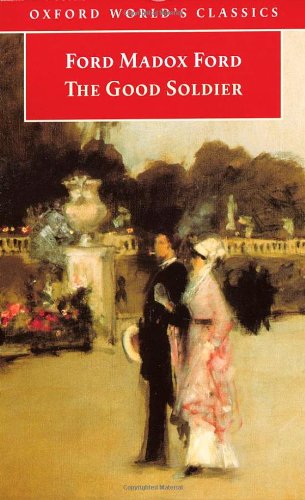Synopsis
For nine years, John Dowell and his wife have spent the summer season at a German spa town in the company of the respectable Ashburnhams. Behind the placid exterior of their lives lie the destructive passions of men and women. When Dowell's world breaks apart, he tells his story as intimately as to a silent listener across the fireplace of a country cottage. 'Who in this world knows anything of any other heart -- or of his own?'.
Biographie de l'auteur
Ford Madox Ford (1873–1939) was an English novelist, poet, critic and editor whose journals, The English Review and The Transatlantic Review, were instrumental in the development of early 20th-century English literature. He is now best remembered for The Good Soldier and the Parade's End tetralogy. The Good Soldier, a novel set just before World War I which chronicles the tragic lives of two "perfect couples" using intricate flashbacks. In a "Dedicatory Letter to Stella Ford” that prefaces the novel, Ford reports that a friend pronounced The Good Soldier “the finest French novel in the English language!” Ford was involved in the British war propaganda after the outbreak of World War I. He worked for the War Propaganda Bureau managed by C. F. G. Masterman with other writers and scholars who were popular in those years, such as Arnold Bennett, G. K. Chesterton, John Galsworthy, Hilaire Belloc and Gilbert Murray. Ford wrote two propaganda books for Masterman, namely When Blood is Their Argument: An Analysis of Prussian Culture (1915), with the help of Richard Aldington, and Between St. Dennis and St. George: A Sketch of Three Civilizations (1915). After writing the two propaganda books, Ford enlisted in the Welsh Regiment on 30 July 1915, and was sent to France, thus ending his cooperation with the War Propaganda Bureau. His combat experiences and his previous propaganda activities inspired his tetralogy Parade's End (1924–1928), set in England and on the Western Front before, during and after World War I. Ford also wrote dozens of novels as well as essays, poetry, memoir and literary criticism, and collaborated with Joseph Conrad on two novels, The Inheritors (1901) and Romance (1903). His novel Ladies Whose Bright Eyes (1911, extensively revised in 1935)[1] is, in a sense, the reverse of A Connecticut Yankee in King Arthur's Court.
Les informations fournies dans la section « A propos du livre » peuvent faire référence à une autre édition de ce titre.
